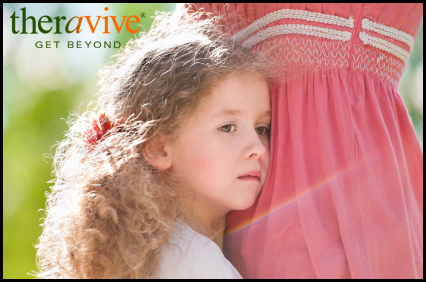O ne of the most controversial topics out there today has to do with mental illness and its diagnosis in children. A lot of people claim that, especially in the United States, there are a lot of people that have been diagnosed with mental illnesses that really don't need the treatment that they are getting. Whether that is the truth or not (and it's likely not), the topic always comes back to children. Can children be diagnosed with mental health issues? How young is too young to be diagnosed with a mental illness? In this post, we're going to explore how that may be possible and if anything can be done if a child is struggling with mental health problems.
ne of the most controversial topics out there today has to do with mental illness and its diagnosis in children. A lot of people claim that, especially in the United States, there are a lot of people that have been diagnosed with mental illnesses that really don't need the treatment that they are getting. Whether that is the truth or not (and it's likely not), the topic always comes back to children. Can children be diagnosed with mental health issues? How young is too young to be diagnosed with a mental illness? In this post, we're going to explore how that may be possible and if anything can be done if a child is struggling with mental health problems.
Why Would Children Have Mental Health Issues?
There actually isn't one main answer to this question, but there are several that you may have to consider. More and more children are being diagnosed with mental illness, and the reasons are as different as the children who have been dealing with these difficult and sensitive diagnoses. Here are some of the most common reasons that young children and teenagers may end up having mental health struggles.
Genetics
Genetics are a main cause of mental illness in youth. If your family has any mental health history, it's possible that your child could have a predisposition toward it. It could also be possible that it shows up earlier than it did in the other people in your family. By knowing your family history and watching out for the signs of mental health issues, you can be more aware of what's going on and possibly help your child quickly enough that it's not incredibly disruptive to their life. Do some research to see your family's history, and if you have a mental health issue yourself, know the signs to watch for in your children.
Emotional Trauma
Don't assume that the word "trauma" means something drastic. If someone, especially a child, is already predisposed to mental illness and something emotionally traumatizing happens, it could be detrimental. It could be something as simple as someone calling them a mean name or being frightened by something that they saw. But it could also be something as stressful as a divorce or a death in the family. Trauma means something different for everyone, so being sensitive to that is important so that you can help your child through the trauma in a healthy and safe way for them. Don't use phrases that belittle their experience - if something is emotionally traumatizing to them, then that's their reaction and you should be sensitive and caring toward them as a result of it.
Injury or accident
This isn't as common, but sometimes physical issues can cause mental illness, especially if there was brain trauma in the mix of it. Sometimes, a child's mood and disposition can change as a result of brain injury (the same thing can happen to adults as well). Obviously, these are a little bit different in nature than the other issues we've talked about in this section, but they still can play a significant role in a child's life and should at least be mentioned when talking about the possible causes of children mental health issues.
These are, obviously, not the only reasons that a child could struggle with mental illness, but they are some of the most common that you will see. A therapist can help you to determine the cause of mental illness and they can also help you with the questions that you may have. Most importantly - as a parent, you shouldn't beat yourself up over your child's mental illness. It's not your fault, and you can get in a place where you can help your child to thrive, which we're going to talk about in the next section.
What Can Be Done for Children with Mental Health Issues?
There are a lot of things that can be done for children with mental health issues, and there are professionals out there that specifically work with children who need help with mental illness. By finding one of those professionals on our website, you can help your child to be able to live a normal, healthy life without a lot of disruption from the mental illness. Also, the earlier that it gets treated, the better off that your child and your whole family will be as a result of the therapy and treatment. Here are some of the things that can be done for children who are struggling with mental health issues.
Some children do need medication
We're going to start off with this because there are a lot of people that don't believe that children should be medicated for mental health issues. That just isn't the case; even though medication should be used carefully (and with the best mental health professionals, like the ones we list on this site, they make sure that it is), it's sometimes necessary, especially if genetics are playing a role in the child's mental health struggles. Not all children need it in order to live a healthy life, but some will and that's safe and alright - trust your mental health professional's judgment call on this.
 Therapy can and should play a large role in their life
Therapy can and should play a large role in their life
Even without medication, a child should be put in therapy. There are literally thousands of mental health professionals that work with children on a regular basis, and they help children to vocalize their feelings, help them to cope and work through their issues, and help the parents to help them in their journey. It's a long journey for a lot of people, but a therapist can really help your family out. If you don't have one yet and your child has or is suspected to have a mental illness, use our website to find one - we've got hundreds of professionals to choose from from all over the country. Therapy varies for children, and can include talking, play therapy, drawing and coloring, and a number of other things that help the child to express themselves in a way that allows the mental health professional to evaluate and assist the child in a positive way. Therapy can also be great for your family as well, which we will talk about in the next point.
Help siblings and other family members to understand what is going on
If there are other children or family members that will be interacting with your child on a regular basis, you want to make sure that they understand what is going on with their mental health. That way, they are more sensitive to their needs and they are less likely to become frightened or concerned if a mental health emergency comes up with your child. Many times, your child's mental health professional will sit down with family members and help them to better understand the illness too, so utilize their expertise and allow them to help everyone in your family.
Don't hide or shame your child because of their mental health issues
This is a big problem in many families; they will hide their child away from the world or try and "save them" from getting hurt by other people as a result of their mental illness. This isn't healthy. Your child should be socializing with others, because otherwise, they may also suffer from loneliness, sadness, and other mental health problems. Even if they realize that they're different in some way, they should be treated just like everyone else and feel as if they are a part of everything that they can be. Obviously, in more extreme cases you may have to restrict their time out or send them to a special school or whatnot, but don't totally cut them off. Also, don't make them feel bad for having their mental health struggles - they may already feel shame over it, and if you add to it, they may not be as willing to talk to you if things get worse or if a mental health emergency comes up. Be understanding and loving, and don't make them feel like they are unloved or "less of a person" because of their mental health struggles.
Be flexible, but don't spoil them or let them run the household
Flexibility is key with mental illness. If your child with anxiety is having a mental breakdown over something, be flexible and help them to work with their feelings, and change things up a bit. But don't let them manipulate this to their advantage. Some children may, without even realizing it. So make sure that, when you're interacting with your child, that you are helping them to feel comfortable and safe, but not so comfortable that they're spoiled or that the whole thing becomes worse because you aren't allowing them to break out of their boundaries. Help your family members, other caretakers, and other children to understand this as well, and you will start to see some positive results that help your child to thrive instead of stagnate. Things may always have to change a little bit if you have a child with a mental health issue, but with persistence and flexibility, you'll be able to help them and the rest of your family to adapt.
Do everything you can to make life as normal as possible for your child
As you can see, the main point here is that you want to make sure that life is as normal as possible for your child. It can be really hard to do this sometimes, because we aren't exactly sure how we should be reacting to different changes and struggles that our children are going through, but you just want to live life normally. Yes, you may have to be flexible, yes, you may have to change your plans a few times because of one reason or another, but if you allow your child to be social and enjoy life the way that it is meant to be enjoyed, everyone is going to be better off and your child is going to feel safe and healthy. Yes, mental health issues do require us to make some adaptations that may be hard at first, but if we are truly compassionate and work hard to understand our children, we're going to find that the whole thing goes more smoothly and that everyone enjoys life just a bit more.
So yes, children as young as 3 or 4 can be diagnosed with mental illness, It sounds like a frightening thing, but if you have the resources that you need and you're prepared to take the bull by the horns and are determined to help your child live a fruitful, normal, happy life, then you have nothing to be afraid of. But, it's up to the parent as to how to proceed with their care. If you feel unsure or are worried about the consequences of such a thing, make sure that you schedule time with a mental health professional. They will be able to guide you in the decisions that you have to make, help to make the right diagnosis so that your child can get the care that they need, and give you what they need in order to help your family adapt to the changes.
_________________________________________________________________________________________________________________________________
American Psychological Association. (n.d.). Children's Mental Health. Retrieved June 9, 2014, from https://www.apa.org/pi/families/children-mental-health.aspx
Kids Mental Health. (n.d.). How Is Mental Illness in Children Diagnosed. Retrieved June 9, 2014, from http://www.kidsmentalhealth.org/how-is-mental-illness-in-children-diagnosed/
National Institute of Mental Health. (2009). Treatment of Children with Mental Illness. Retrieved June 9, 2014, from http://www.nimh.nih.gov/health/publications/treatment-of-children-with-mental-illness-fact-sheet/index.shtml
WebMD, LLC. (2008, May 18). Mental Health: Mental Illness in Children. Retrieved June 9, 2014, from http://www.webmd.com/mental-health/mental-illness-children
Wedge, M. (2011, May 23). Six Problems wih Psychiatric Diagnosis for Children. Retrieved June 9, 2014, from http://www.psychologytoday.com/blog/suffer-the-children/201105/six-problems-wih-psychiatric-diagnosis-children
About the Author
 Marti Wormuth, MA
Marti Wormuth, MAMarti has a Bachelor’s Degree in Sociology and a Master’s in Communication Studies. Her favorite activities include reading, playing games, and hanging out with the students at her church. Marti volunteers with the youth ministry at her church as a teacher and mentor. Because of this, she recently started another degree, her graduate certificate in student ministries. She considers her current graduate work to be a stepping stone to becoming a youth pastor or a published author.
Professional Website:
martis-miscellany.com/